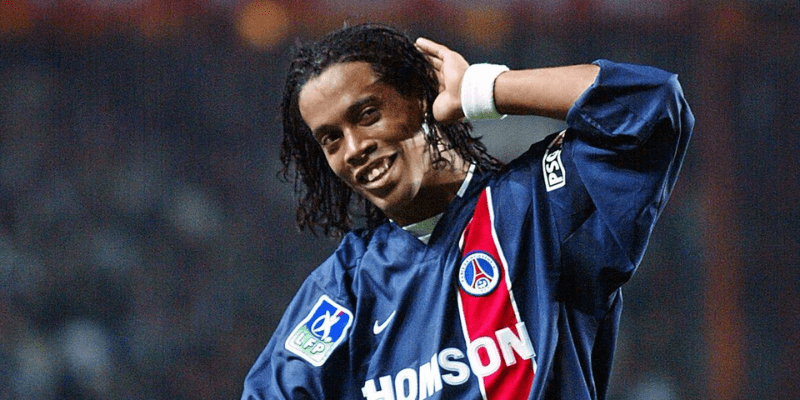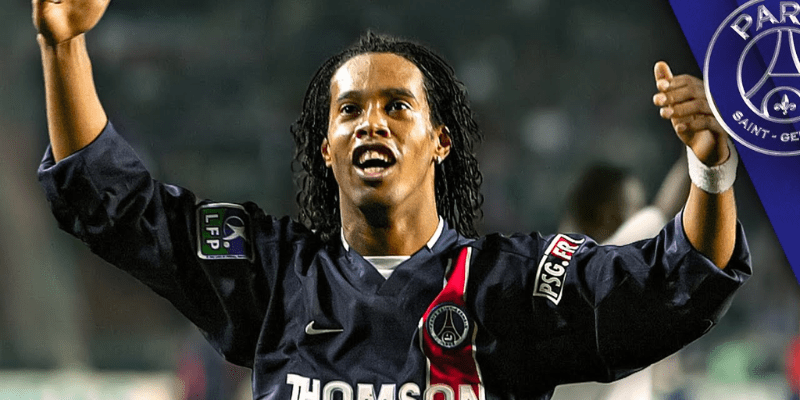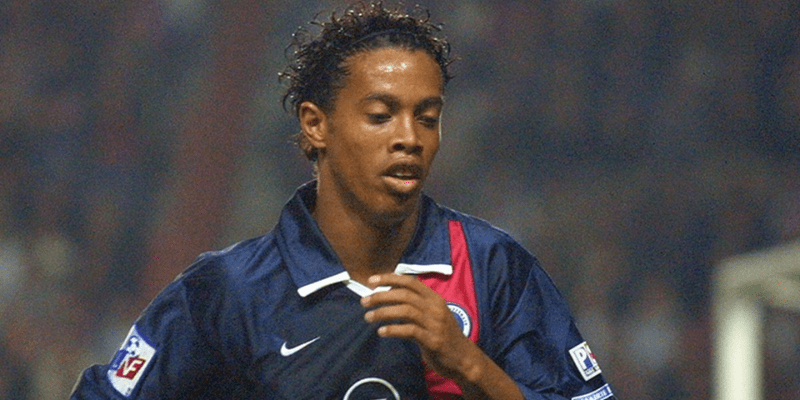The story of why Ronaldinho joined PSG is more than a footnote—it’s the beginning of an epic European saga. At age 21, Ronaldinho left Grêmio for Paris Saint-Germain, taking his first steps in Europe. He arrived curious, ambitious, and full of flair. Why Paris, though? What drew the samba wizard to France, rather than Spain, England, or Italy? In this article, ZaneyStrike explores the motivations, context, and early triumphs behind that defining decision.
The Football Landscape in 2001

In 2001, Ronaldinho was already turning heads in Brazil. At Grêmio, his dribbling, vision, and goal-scoring ability had marked him as one of South America’s most promising young stars. But European clubs had long cast their gaze toward Brazil—and the typical path then was to land somewhere in Europe early, adapt, then make bigger moves.
Several factors shaped his destination:
- Work permit & eligibility constraints: As a non-EU player without a heavy international resume, options like England were tricky. A move to Arsenal had reportedly collapsed due to visa concerns.
- PSG’s growing ambition: Paris Saint-Germain had financial backing and an ambition to grow beyond French borders. For a young Brazilian, it offered a reputation boost and a stepping stone.
- A path to development, not instant superstardom: Ronaldinho could grow, get playing time, and make his own mark without being swamped immediately by pressure at the biggest clubs.
So when PSG made an offer, the move made sense for both sides.
The Deal: From Grêmio to Paris
When Ronaldinho joined PSG, the transfer fee was approximately €5 million, and he signed a five-year contract. The formal agreement was made in April 2001, but his official arrival and registration took effect in July of that year. During the in-between period, he acclimated, handled formalities, and built anticipation around what Paris were getting.
At PSG, he was assigned squad number 21 and joined a roster that included Brazilian compatriots like Aloísio, as well as creatives like Jay-Jay Okocha and Nicolas Anelka. The club offered a mix of experienced players and room for youth to shine.
Inside PSG, the environment was fertile for young talents. His arrival was strategic: for PSG, signing Ronaldinho was also a statement of intent toward European relevance.
Motivations Behind the Move

Sporting ambition & exposure
By joining PSG, Ronaldinho entered the European spotlight. He’d gain exposure in Ligue 1 and continental cups, and he’d be visible to major clubs who monitored young talent in France. That exposure was critical: PSG acted as a launchpad toward elite status.
Room to grow & fewer expectations
Rather than being thrust into the pressure cooker at Barcelona, Real Madrid, or Manchester United immediately, PSG gave him space to evolve, make mistakes, and carve his style. He could adapt to European football without being crushed by expectation.
Cultural and personal attraction
Paris, as a global city, carried prestige. The allure of living in Europe’s cultural capital—combined with the freedom to express joy and flair on the pitch—likely appealed to Ronaldinho’s personality. In later reflections, he has often spoken fondly about his Paris days, the fans, and the emotional connection he formed there.
Strategic move from his team & advisors
His brother and agent, Roberto Assis, played a central role in planning the transfer. They likely weighed which European pathway would maximize his development and long-term trajectory. PSG’s offer aligned with that strategy.
Early Years at PSG: Challenges and Breakthroughs
Settling in & adaptation
In his first months, Ronaldinho alternated between starting and bench roles. He scored his first goal for PSG in a 2–2 draw against Lyon in October 2001, converting a penalty after coming on as a substitute. Over time, he began to showcase glints of magic: dribbles, audacious flicks, and glimpses of what would become his signature flair.
Highlights & frustrations
- He played key roles in cup competitions, including scoring a brace in important matches.
- He helped PSG reach deep into domestic cup tournaments.
- However, reported tensions with coach Luis Fernández surfaced: some believed his focus was partly on nightlife and off-pitch distractions.
- Teammates later claimed he was inconsistent in training attendance during that period.
Despite those challenges, his performances elevated PSG’s status and prepared him for the leap to global superstardom.
Impact & Legacy of That Move

Ronaldinho’s time at PSG may have lasted only two seasons, but its impact was lasting:
- It introduced his genius to Europe, laying the foundation for his later heroic years at Barcelona.
- PSG benefited from his rise: his flair elevated the club’s brand and signals to future talents that Paris could host stars.
- Fans in Paris still remember him fondly as an early icon who played with joy.
To this day, when fans wonder why did Ronaldinho join PSG, the answer blends ambition, strategy, and heart: it was a calculated risk powered by a young Brazilian’s dream to conquer Europe.
Final Thoughts
Why did Ronaldinho join PSG? Because Paris offered the perfect bridge between his Brazilian brilliance and future global stardom. It gave him time, exposure, growth, and a stage to dazzle—without being buried under unrealistic expectations, Ronaldinho didn’t just take a club; he entered a narrative.
If you enjoyed exploring this chapter of his journey, ZaneyStrike invites you to dive deeper: check out our in-depth articles on his Barcelona rise, his influence on modern dribbling, or the PSG legends who followed him. Let his Parisian passage inspire your next click.






